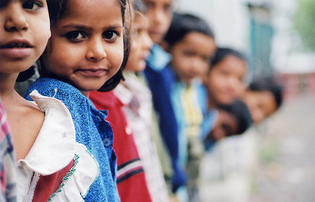Learning Disabilities

Having a learning disability doesn’t mean you can’t learn. But you’ll need some help and you’ll need to work extra hard. If you have a learning disability, such as dyslexia or dyscalculia (serious trouble with math), remember that you are not slow or dumb.
Learning disabilities happen because of the way a person’s brain takes in and processes information. As a result, people learn differently. The trick will be figuring out how you learn best.
There are people who know how to do just that. Your parents and teachers can help you and they can find you a learning specialist or a school psychologist. These professionals can help figure out what a kid’s learning problem is — and come up with ideas for how to make it better.
What Are Learning Disabilities?
Learning disabilities aren’t contagious, but they can be genetic. That means they can be passed down in families through the genes, like many other traits we get from our parents and grandparents. Someone with a learning disability probably has other family members who have had some learning troubles, too.
Kids with learning problems are sometimes surprised to find out that one of their parents had similar troubles when he or she was in school. But kids today have an advantage over their parents. Learning experts now know a lot more about the brain and how learning works — and it’s easier for kids to get the help they need.
Dyslexia (say: dis-lek-see-uh) is a learning disability that means a kid has a lot of trouble reading and writing. Kids who have trouble with math may have dyscalculia (say: dis-kal-kyoo-lee-uh). And people who have trouble forming letters when they write may have dysgraphia (say: dis-graf-ee-uh). Other kids may have language disorders, meaning they have trouble understanding language and understanding what they read.
It can be confusing, though. What qualifies as “trouble” enough to be diagnosed as a learning disability? Reading, doing math, and writing letters may be tough for lots of kids at first. But when those early troubles don’t fade away, and it’s really difficult to make any progress, it’s possible the kid has a learning disability.
Attention deficit hyperactivity disorder (ADHD) is sometimes thought of as a learning disability but it’s not usually considered one. Why? Because most kids with ADHD can learn in school without special assistance, even though they may be easily distracted or have trouble sitting still in class. Although ADHD itself isn’t a learning disability, researchers believe kids with ADHD may be more likely to have learning disabilities.
How Do I Know if I Have a Learning Disability?
It’s very hard for a kid to know if he or she has a learning disability. But kids don’t have to figure all this out on their own. What a kid needs to do is tell someone. Start with your teacher and your mom or dad.
Even if you feel a little shy about it, tell them what kinds of problems you’re having in school. Maybe you read a chapter for homework and then can’t remember anything you read. Or in class, maybe everyone else seems to follow along easily, but you get stuck and don’t know what page everyone is on. You might open your book to do an assignment and have no idea where to start.
Kids with a learning disability might also answer “yes” to many of these questions:
- Do you struggle in school?
- Do you think you should be doing better than you are in school?
- Is reading harder for you than it should be?
- Does your head think one thing but your hand writes something else?
- Is writing slow and really hard for you?
- Do you make spelling and other errors when you write?
- Are you having difficulty with math?
- Is it hard for you to keep your notebooks and papers organized? Do you end up losing or forgetting them?
But even if you say “yes” to some of these questions, you won’t know for sure until you visit a school psychologist or a learning specialist. They can give you some tests to spot any learning problems you might have. They’ll also be able to identify what your strengths are — in other words, what you’re good at! Once a psychologist or learning specialist figures out what your learning problem is, you both can start working on solutions.
A kid might work with a tutor or specialist or even go to a special class. But often, kids with learning disabilities can continue in their regular classrooms and there’s no reason they can’t do normal stuff, like participate in school activities and sports.
Though some kids might feel shy about having a learning disability, it can be a relief to finally know what the problem is. Then, the kid doesn’t have to feel as worried and upset about school — because he or she is learning how to learn in new ways. The psychologist or learning specialist might even give you a learning plan — then you can see what the strategy is for helping you learn. They can even offer help with organizational skills. If you’re not organized, it’s hard to get any schoolwork done.
What You Can Do About Learning Disabilities
Finding out you have a learning disability can be upsetting. You might feel different from everyone else. But the truth is that learning disabilities are pretty common. And if your learning specialist or psychologist has figured out which one you’re facing, you’re on the right track. Now, you can start getting the help you need to do better in school.
But for this special help to really work, you’ll need to practice the new skills you’re learning. It may take a lot of effort every day. That can be a challenge, but you can do it. Soon, you’ll enjoy the results of all your hard work: more fun and success at school!